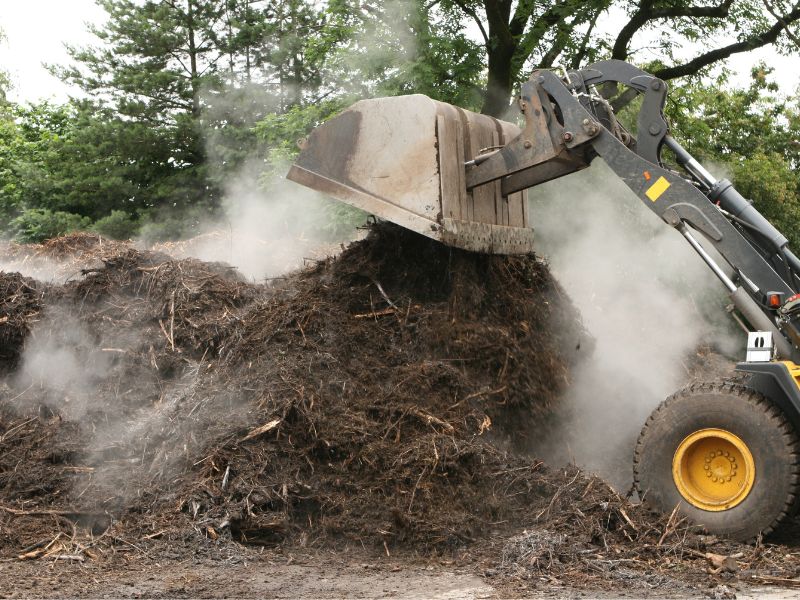Benefits of Compost and Mulch on Fire-Damaged Land

2020 has become the largest wildfire season recorded in California’s modern history as wildfires have devastated many parts of state this year. As of October, 4,267,386 acres have burned so far and we’re still not quite in the clear yet. We are all looking to the coming months to bring much-needed rainfall for our state, allowing us to start to heal our land and soils.
CalRecycle and CalTrans recently shared a Fire Toolkit sharing the benefits of the use of compost and mulch on fire-damaged land.
• Compost helps restore soils by improving its physical, chemical, and biological properties. Whether the compost is incorporated or applied as a protective layer, soils treated with compost are rich in slow-release nutrients, see improved water infiltration and retention, and benefit from an environment where plants thrive. Allowing plants to develop healthy, extensive, and deep roots further improves soil structure and prevents erosion.
• Compost can bind and adsorb contaminants already in soil, including heavy metals, fuels, and polycyclic aromatic hydrocarbons, making it an ideal treatment for soil remediation (also known as bioremediation) and for filtration of runoff from contaminated land.
• Compost amendments and mulch help protect fire-damaged lands by protecting the soil from the erosive impact of heavy rain.
• Organic matter in compost helps soils increase water infiltration and water holding capacity, providing seeds with more water to germinate.
• Some nutrients in compost, while tightly bound in organic complexes, are highly soluble in synthetic fertilizers and rapidly leach into soil and water; this means nutrients in compost will not easily wash away in the first rainstorm and will be there longer than synthetic fertilizers to sustain plant growth and health.
• Compost helps establish vegetation and treat stormwater runoff. When soil can re-grow its protective vegetative layer quickly, the result is less erosion, cleaner waterways, and less time and money to dig out critical infrastructure.
• Mulch suppresses weeds and moderates soil temperature.
Download their tool kit and share it widely to help spread the knowledge and power of compost for the future our lands.
